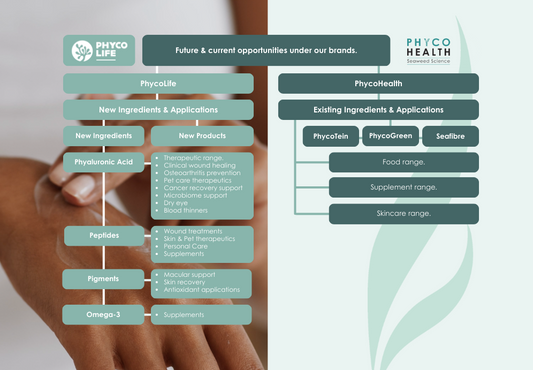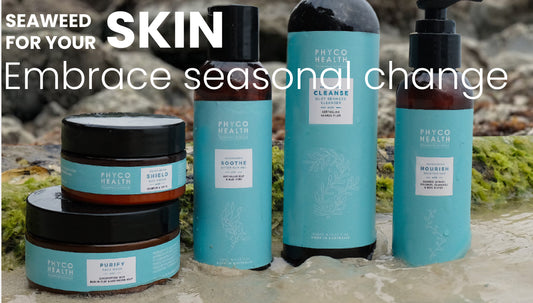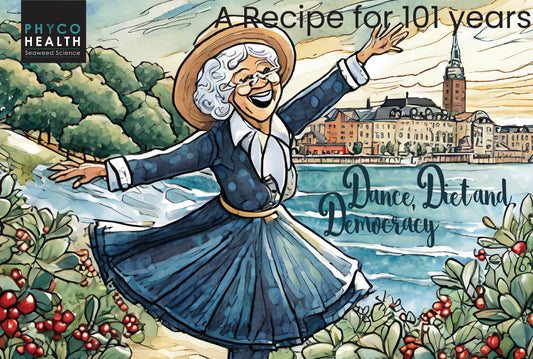Vitamin B 1,2,3…..
Where do we start??? Ok there are 12 of them. They all started as one, but slowly slight differences in the molecule design and new types were discovered and, as it turns out, we need them all!
Collectively B Vitamins are known to be very important for our nervous system health, energy and metabolism in general. However each B vitamin has it’s own little special skills that help in unique ways. Some are classified as true vitamins because we just can't make them and they are essential for human function, while others are still important but not so hard to get.
This week the news has been awash with stories of the risk of overdosing B6, or pyridoxine, which is an essential vitamin that supports many important processes and tissue in the body, including the nervous system, brain and skin. If you are not getting enough, then it might be important to supplement, however this is one vitamin group that a good diet should really support, without the need to risk overdosing with supplements.

Supplementing challenges
For B6, you only need up to a couple of mcg per day, and most of us can tolerate a supplementation of up to 100-200mcg per day. However, some of the synthetic supplements being reported on this week were dosing people with up to 1000mcg per day. This is the crazy world of synthetic vitamins and minerals getting out of hand, when such dosing should only be left up to the medical practitioners who can use higher doses to treat specific diseases during certain conditions.
Getting too much B6 will have the opposite effect of supporting brain health, and it can actually damage the brain and nerves.
Food sources are better
Good food should be your safest way to get nearly all of the B vitamins, and if you eat the right types of food then in most cases this should be adequate. So where do you get them?
Broadly speaking animal products including eggs and milk, but also lots of plant products like legumes, nuts and seeds, wholegrains and fruit and vegetables are important. Some things like Adenine have special sources like raw honey. However there is a special B vitamin that we should pay attention to in sourcing adequately...
|
Thiamine |
wholegrains, legumes, nuts and seeds, fish |
|
Riboflavin |
eggs, meat, milk, green vegetables |
|
Niacin |
meat, fish, nuts, legumes, grains |
|
Adenine |
wholegrains, raw honey, fresh fruit, herbs and spices |
|
Pyridoxine |
starchy vegetables, corn, banana, green peas, yeast, sunflower seeds, fish, nuts, carrot, egg |
|
Folate |
leafy greens, greens, oranges, nuts, legumes, fortified foods (flours) |
|
Cobalamin |
liver, clams, mussels, yeast, yoghurt, PhycoGreen and Nori, Nuts, Fish, Cheese, chicken, egg, beans, beef |
Vitamin B12, or Cobalamin, is the one B vitamin that shows a common deficiency among people the modern world. It is most prevalent however in vegans, because land plants do not make or contain B12 as a rule.
Bacteria are the source of Vitamin B12
Whether you choose to eat termites (see table), milk from a cow or some seaweed, the maker of B12 always stems from bacteria.
The ocean waters are abundant with microbes that make B12, and shellfish that filter this water are super rich in B12.
What is very interesting however, is that certain species of algae, including our seaweed PhycoGreen 84 (a type of Sea Lettuce) and certain species of Nori actually need B12 just like animals, and to get that they have symbiotic relationships with bacteria on their surface. One study in Japan has shown a community of children on a vegan diet of Nori and brown rice over years, did not have any deficiency of B12.

Oh - I am also sure that a sandwich of termites will get you there too as you only need a couple of micrograms a day! But I will choose shellfish, seaweed and fermented foods any day over a termite sandwich.
Easy Vitamin B snacking
Eating Nori snacks or any of our PhycoFoods will give you up to 1.4 grams of these types of seaweed that contain B12 in a day, and potentially meet your daily requirements of B12 – this is just a tablespoon of Phukka day, or a serving of our SeaSpirals, SeaC's, PhycoMuesli or PhycoBites.
Keeping a good Gut improves Vitamin B uptake
What is important to good Vitamin B uptake as well, is proper gut function, and it is known that the absorption of B vitamins can be reduced by a poor gut balance, either overgrowth of the wrong bacteria or inflammation like IBS or Crohn's Disease. So the SeaFibre in our foods and supplements will also help to boost what really may be deficient in your modern diet, and that is fibre.
Avoid termites and it can be delicious
SeaFood Chowder must be the Super B recipe from the sea. A stunning version was created recently at one of our celebrated restaurant venues, at Mountain Ridge Winery. This is a Super B recipe from the Sea, because it contains our seaweed pasta with a shellfish sauce - both amazing sources of B12 and more.
So chow down and be confident that a normally healthy person on a plant rich diet, can continue to be healthy throughout life, with adequate B vitamins from food.
Important to note
Always see your doctor though for any health concerns as there are certain medical conditions that warrant additional B vitamin treatments under their medical care. Also make a note that Spirulina is not a source of true Vitamin B12 as it produces a copy of the Vitamin that cannot be used as a source.




